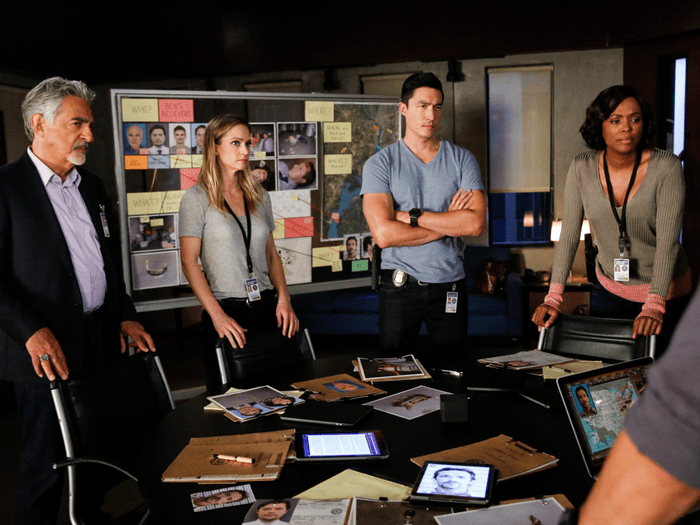Criminal profiling is used by law enforcement agencies to develop a profile of a suspect based on their behavior, lifestyle, and other characteristics. Despite its increasing popularity, there are many misconceptions about criminal profiling. Here are ten things you need to know about criminal profiling: it is not psychic; it is not 100% accurate; anyone can be a criminal profiler; it is not limited to murder cases; it is not the same as a criminal records check; it is not limited to the FBI; profilers work closely with other investigators; much of the work is done in an office setting; it can take months or even years to complete; and it can help solve cold cases. Profiling is a valuable tool in the investigative toolkit of law enforcement agencies.
10 Things You Didn’t Know About Criminal Profiling
Criminal profiling is an investigative technique used to identify specific characteristics of a suspect, based on their behavior patterns, lifestyle, and other factors. While it has become increasingly popular in recent years thanks to shows like “Criminal Minds,” there are still many misconceptions about what exactly criminal profiling entails. Here are ten things you might not know about criminal profiling:
1. Criminal Profiling Is Not Psychic
Contrary to popular belief, criminal profilers do not possess any kind of psychic or supernatural abilities. They rely on careful analysis of the facts and evidence available to them, as well as interviews with witnesses and other investigative techniques, to develop their profiles. The ultimate goal is to help investigators narrow down their list of suspects and identify persons of interest.
2. Criminal Profiling Is Not 100% Accurate
While criminal profiling can be a valuable tool for investigators, it is not infallible. Profilers must be careful not to jump to conclusions or make assumptions based on incomplete information. Additionally, there is always the possibility that a suspect may deviate from their typical behavior patterns, making them difficult to identify through profiling alone.
3. Anyone Can Be A Criminal Profiler
Contrary to what you might think, there is no specific educational or professional background required to become a criminal profiler. Many profilers have backgrounds in psychology, criminology, or law enforcement, but others come from entirely different fields. What is most important is a sharp analytical mind, strong communication skills, and the ability to carefully analyze complex data.
4. Criminal Profiling Is Not Just For Murders
While criminal profiling is often associated with murder cases, it can be used to investigate a wide range of criminal activity. This might include arson, kidnapping, fraud, and other types of crimes where understanding the offender’s behavior and motivations is crucial to solving the case.
5. Profiling Is Not The Same As A Criminal Records Check
While a criminal records check can be a helpful tool for investigators, it is not the same as criminal profiling. A criminal records check provides information about a person’s past convictions, but it does not necessarily reveal much about their behavior, motivations, or lifestyle. Profiling, on the other hand, is a more nuanced approach that seeks to understand the person behind the crime.
6. Criminal Profiling Is Not Limited To The FBI
While the FBI is probably the most well-known user of criminal profiling in the U.S., it is not the only law enforcement agency to use this technique. Many local police departments and other organizations also have their own profilers or work in partnership with outside consultants to help solve crimes.
7. Profilers Work Closely With Other Investigators
Profiling is not a one-person job. Profilers must work closely with other investigators, including forensic experts, detectives, and analysts, to gather and analyze evidence. It is only by working together that they can develop a complete picture of the crime and identify potential suspects.
8. Not All Profiling Occurs In The Field
While some profiling may involve visiting crime scenes or interviewing witnesses, much of the work done by profilers actually takes place in an office setting. This might include analyzing crime scene photos and videos, reviewing witness statements, and studying behavioral patterns and other data.
9. Profiling Can Take Months–Even Years–To Complete
Despite what you might see on TV, criminal profiling is not an overnight process. It can take many months, even years, for profilers to gather enough information and develop a comprehensive profile of a suspect. Additionally, profiling can be an ongoing process and may need to be updated as new information becomes available.
10. Criminal Profiling Can Help Solve Cold Cases
Criminal profiling can be a particularly valuable tool in unsolved, “cold” cases where few leads exist. By analyzing crime scene evidence and other data, profilers may be able to identify new patterns or provide new leads that were not apparent at the time of the crime. In some cases, this can lead to breakthroughs in long-stagnant cases that were once thought unsolvable.
Conclusion
Criminal profiling is a complex and multifaceted technique that can yield valuable insights into the behavior and motivations of criminals. While it is not without its limitations and challenges, it remains an important tool in the investigative toolkit of law enforcement agencies around the world.
